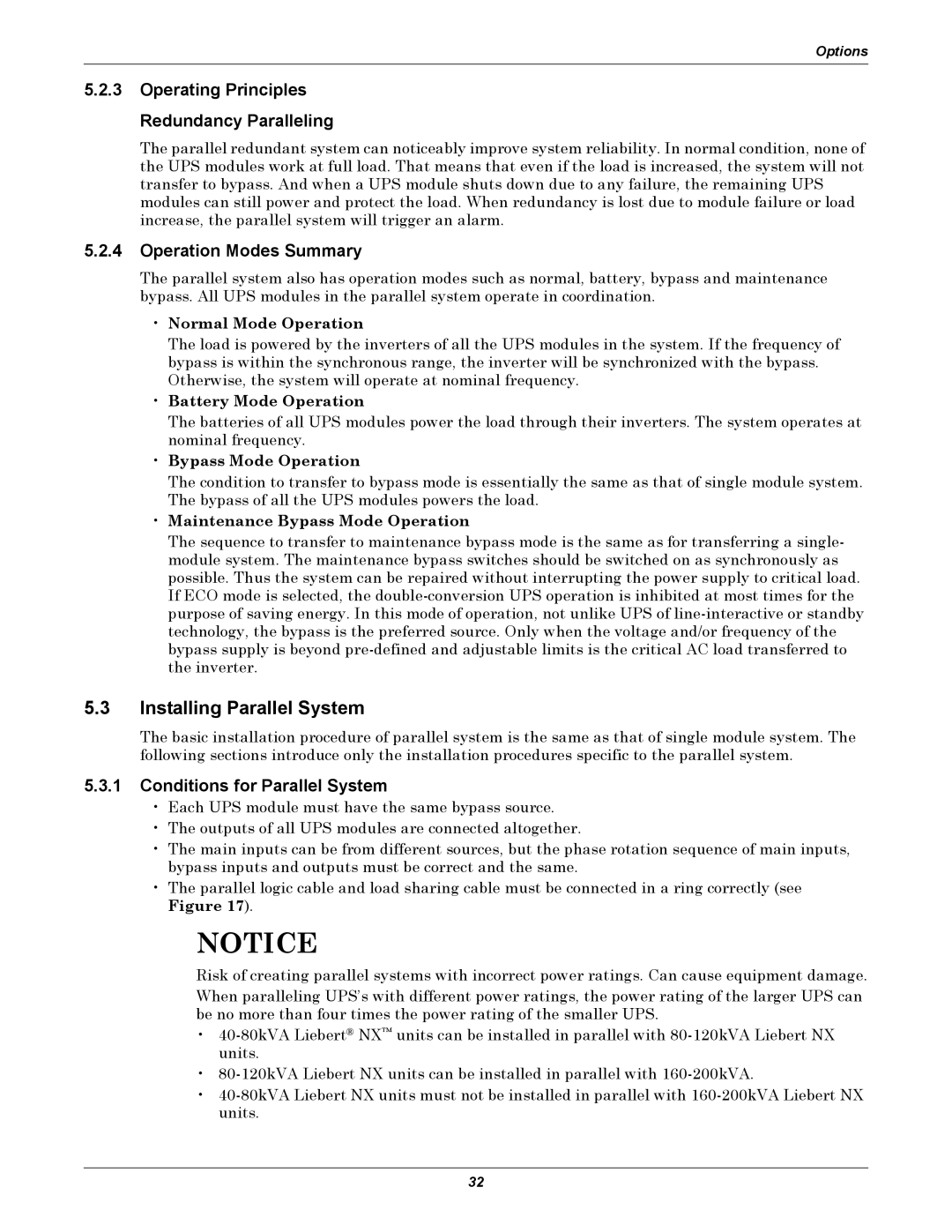
Options
5.2.3Operating Principles Redundancy Paralleling
The parallel redundant system can noticeably improve system reliability. In normal condition, none of the UPS modules work at full load. That means that even if the load is increased, the system will not transfer to bypass. And when a UPS module shuts down due to any failure, the remaining UPS modules can still power and protect the load. When redundancy is lost due to module failure or load increase, the parallel system will trigger an alarm.
5.2.4Operation Modes Summary
The parallel system also has operation modes such as normal, battery, bypass and maintenance bypass. All UPS modules in the parallel system operate in coordination.
•Normal Mode Operation
The load is powered by the inverters of all the UPS modules in the system. If the frequency of bypass is within the synchronous range, the inverter will be synchronized with the bypass. Otherwise, the system will operate at nominal frequency.
•Battery Mode Operation
The batteries of all UPS modules power the load through their inverters. The system operates at nominal frequency.
•Bypass Mode Operation
The condition to transfer to bypass mode is essentially the same as that of single module system. The bypass of all the UPS modules powers the load.
•Maintenance Bypass Mode Operation
The sequence to transfer to maintenance bypass mode is the same as for transferring a single- module system. The maintenance bypass switches should be switched on as synchronously as possible. Thus the system can be repaired without interrupting the power supply to critical load. If ECO mode is selected, the
5.3Installing Parallel System
The basic installation procedure of parallel system is the same as that of single module system. The following sections introduce only the installation procedures specific to the parallel system.
5.3.1Conditions for Parallel System
•Each UPS module must have the same bypass source.
•The outputs of all UPS modules are connected altogether.
•The main inputs can be from different sources, but the phase rotation sequence of main inputs, bypass inputs and outputs must be correct and the same.
•The parallel logic cable and load sharing cable must be connected in a ring correctly (see Figure 17).
NOTICE
Risk of creating parallel systems with incorrect power ratings. Can cause equipment damage.
When paralleling UPS’s with different power ratings, the power rating of the larger UPS can be no more than four times the power rating of the smaller UPS.
•
•
•
32
